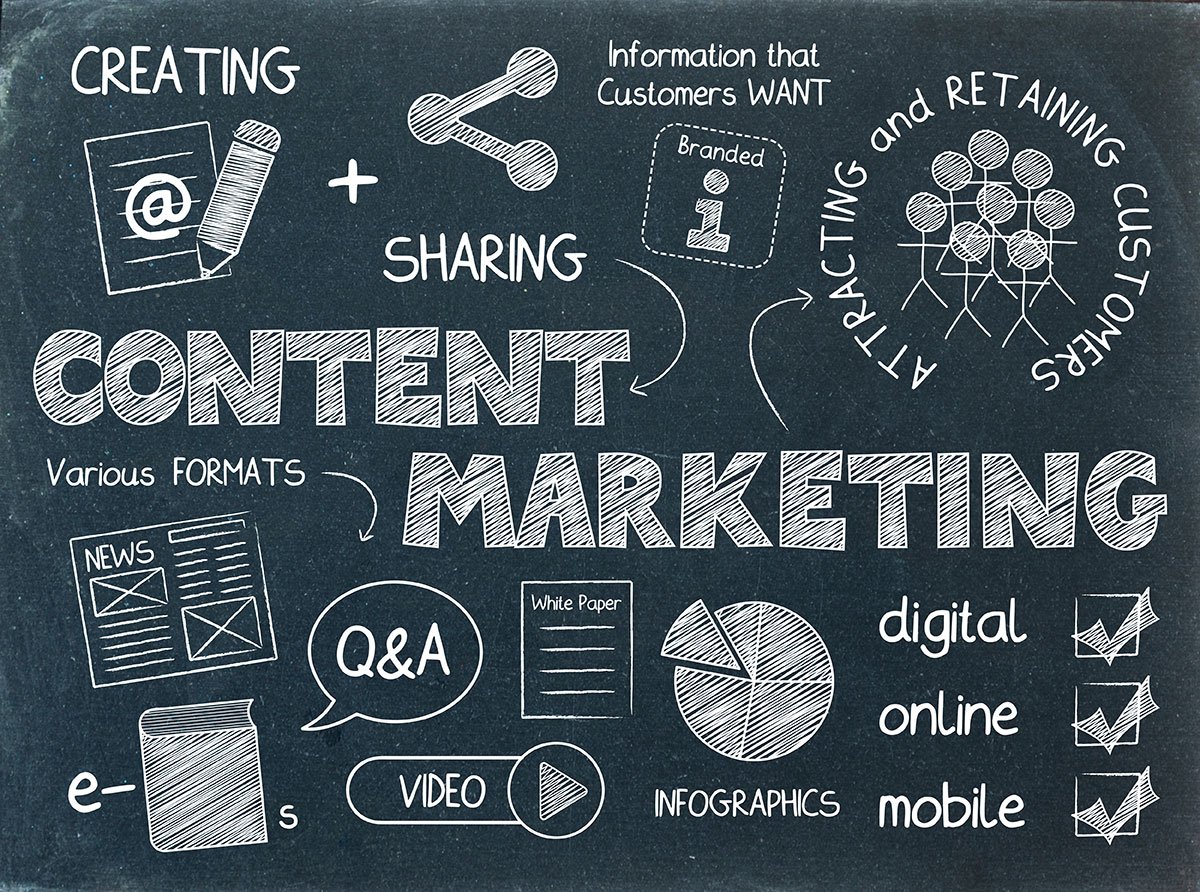Brand Marketing Has Bad ROI And Comes At An Opportunity Cost Here's Why It's Dying
Brand marketing is a holdout from the Golden Era (1950’s) Ogilvy days, where ‘As Seen On TV’ mattered, and you remembered the Coppertone billboard when you were at the local pharmacy, and chose that product.

The Web 2.0 revolution and buyer-driven Buyer Journeys put brand marketing on the chopping block. Like ‘push’ (paid) marketing (even for products and not their encompassing brands), brand marketing boils down to companies talking about themselves. Nobody has the time to listen, the inclination to care, or is foolish enough to believe them.
By ‘brand marketing’ we mean:
- A contrast to product marketing. Were not talking about when a company’s brand is a product (e.g. Dysan vacuums or Uber);
- Awareness campaigns (versus direct response or content offers);
- Marketing through or on legacy broadcast channels, like television, but not always;
- Marketing the identity of a company, rather than a product, services, access or an experience.
Brand marketing made sense in a time when there were three appliance or vehicle manufacturers; when customers didn’t have an almost unimaginable plethora of options; when customers weren’t overwhelmed with information; when user-generated content didn’t expose the truth about your company; and when buyers could not conduct meaningful research, as they can now – using Internet search engines like Google.
Brand marketing made sense when the brand ‘Maytag’ or ‘Ford’ meant something. Today, people research and purchase products from companies and brands; they don’t want to remember you; they won’t infer that a reliable or quality company makes a reliable or quality specific product they’re seeking. We can’t assume that Panasonic bicycles have quality, because their portable radios have quality. Those heuristics and inferences are dead.
There are a few reasons brand marketing has outgrown its use, and is dead or dying:
- Most of what’s said about your company, product or brand comes from third-party, user-generated, content. Next to review sites and referrals, nobody cares about or believes what you say about your products, much less your brand.
- The public gets to decide what you are, not you. And that gross impression is etched, by the public, on review sites, in social media and other user-generated content. It’s written on industry websites and articles. Nobody believes what you say about yourself. It’s not just that we’ve seen companies lie and do dirty deeds behind their official brands, it’s that we have high-resolution, almost infinite, access to a given company’s true identity.
- You can’t use a brand. Ultimately, you always use the product or service the brand manufactures or makes available. A brand just amounts to more data points to recall, more information to ingest; it’s another layer of abstraction to unpack – when people are already harried and overwhelmed – and nobody cares. Reputations are really product-to-product, even within brands. And the information (reviews) separating good from bad products has never been more accessible.
- Whatever connection you manage to make in people’s heads between your brand and your product doesn’t matter next to how customers see the actual product they’re considering. There is little lasting benefit to a crummy product from Apple being associated with Apple. Nobody embraced Google Buzz or Google+ because Google’s search engine was useful.
- With many physical products made shoddily and overseas, by unscrupulous companies that brand and rebrand monthly (often with Western-sounding names), brand accountability and even identity are unreliable.
- Assuming the brand is not the product (as it is with, say AirBNB), by definition, marketing the brand comes at the opportunity and resource cost of direct response or content marketing the product or service a given company is selling, and therefore hurts profits. If all the money, time, and effort pointed at brand marketing were pointed at product marketing, revenue would fare better.
- Brand marketing is always ‘push’ or outbound marketing; it’s never ‘pull’ or inbound (content). Talking about yourself in a positive light is unappealing, in the days of Web 2.0.
- Marketing needs to produce results, and brand marketing produces low-yield when you can track it.
- The whole point of a brand is to keep product or service awareness top-of-mind when people are in-between purchases, or considering. But people have restricted attention, and an even shorter memory. So, trying to keep brands ‘top of mind’ as you could before people saw 10,000 ads a day, is pointless in this era. If you insist on trying to do this, it will be costly.
The reputation of a company (their brand) has never been more inextricably linked to the actual value and character of said company. You will not persuade people on the benevolence or quality of Dow Chemicals if Dow Chemicals is poisoning people. That was possible in 1955; Not anymore.
Brands are vestiges of a bygone time. They are no longer a reliable index to quality. The ‘whole brand represents products’, or ‘brand represents X’ is also outdated. Companies today often bend whichever way will draw the least fire, or which is socially expedient. There are some exceptions, but particularly with the companies that can afford – say – SuperBowl ads, we know it’s about pleasing the shareholders and maximizing profits. We’ve seen so much disgusting behavior from Blue Chip companies in the last half-decade that nothing they put in a mass media, brand advertising, campaign, means shit.
These notions are no longer valid in consumer minds, because they are not true, and we can discover when it’s not true, easily. We decide what companies are. And that assessment is determined by Internet search and discussion on social media; talking to neighbors. Review sites. Personal experience. Memes have more impact on Google’s ‘brand’ perception than a billion dollars in paid advertising could have. One is the vox populi; the other is them blathering on about not ‘being evil’ (‘don’t be evil’ is their tagline). Which do you think the public believes?
Customers shop for solutions, not the company reputation or hype around that solution, and they are more informed than ever. Consumers will buy a great product from a ‘bad’ brand; and a ‘good’ brand will have trouble selling a crummy product. Like Google Buzz. Sorry – I had to close that extended example.
It’s not 1955 anymore. Nobody can be ‘sold’ anything, least of all a brand identity myth. Not when the truth has never been so accessible. Brand marketing is really founded on the premise that buyers can be told who to like, and what to think. That’s not true anymore. The reputation of your company has never been more closely linked to the actual quality you offer. You can’t sell people on the brand of Dow Chemicals if you’re poisoning people. Not anymore.





